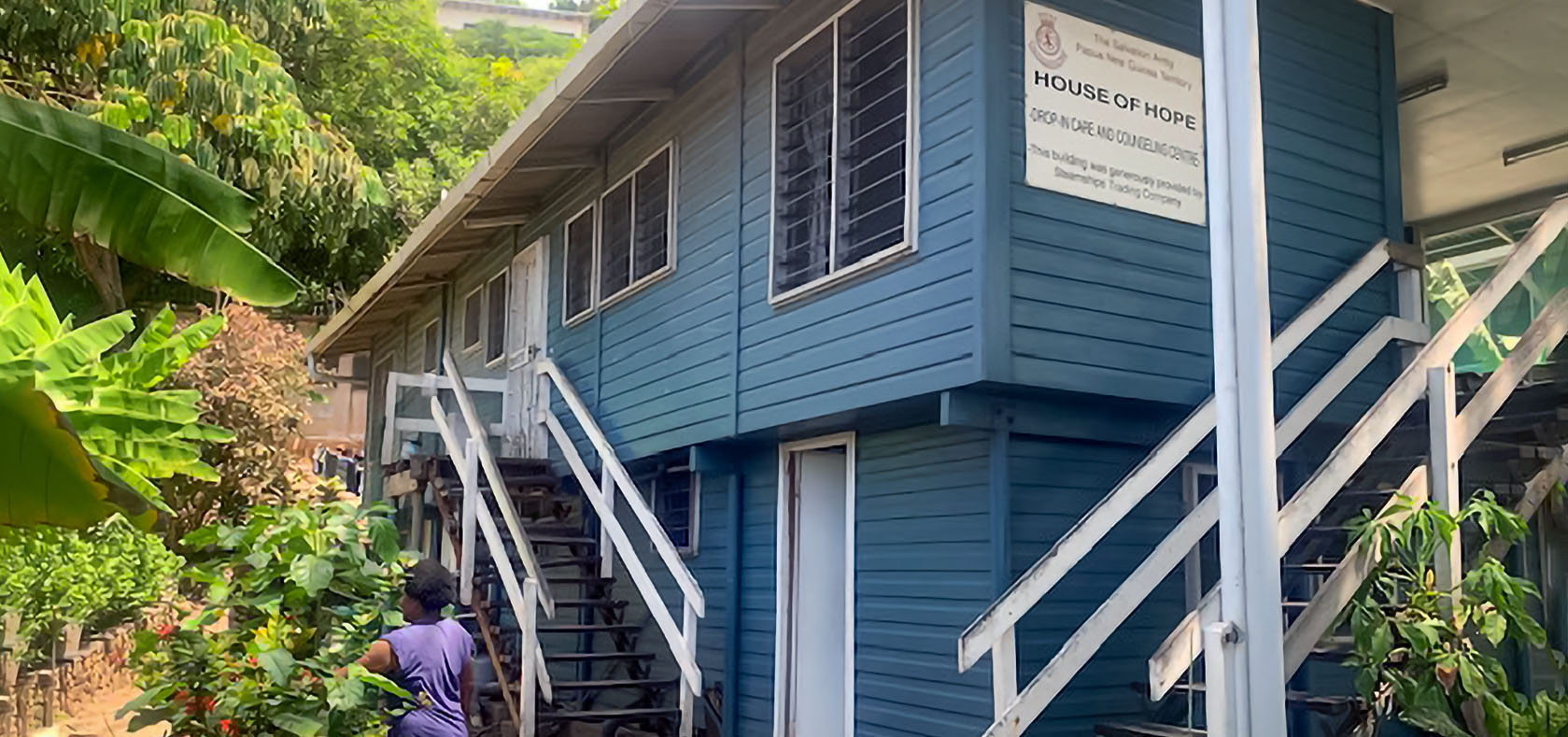Women seeking refuge from violence at UN Women-supported safe houses in Papua New Guinea
Date:
Author: Aidah Nanyonjo

Port Moresby, Papua New Guinea — UN Women has been helping survivors of gender-based violence in Papua New Guinea by providing training and equipment to the country’s safe houses to cope with the COVID-19 pandemic.
Last year, UN Women developed COVID-19 guidelines for the safe houses and gave training on the guidelines to 117 workers providing services to survivors staying there. To ensure the availability of quality services, UN Women supplied 23 safe houses in 16 provinces with food vouchers, reusable face masks, personal protective equipment (PPE) and information technology equipment such as laptops and internet dongles.
Rose Martins, 37, married for nine years and with three children, sought refuge at Salvation Army House of Hope in Port Moresby last August after a quarrel with her husband.
“We always had quarrels with my husband, which I had got used to. We could quarrel, reconcile, and move on as a married couple,” she said. “But this time, he chased me with a panga, wanting to cut me into pieces. I had to run for my dear life and that is why I am here. I don’t want to go back to him, I want to start a new life.”
Salvation Army House of Hope is one of the safe houses that have been receiving support from UN Women under the Spotlight Initiative, a global United Nations project funded by the European Union that aims to end violence against women and girls.
Major Lydia Nenewa, the head of Salvation Army House of Hope, said they have received close to 60 women since the start of the COVID-19 pandemic. She said the violence in homes was due to men’s desire to demonstrate their power over women, poverty, and lack of understanding in the relationship.
“We take SOPs (standard operating procedures) seriously,” Nenewa said. “Both our clients and staff must follow them daily, and that is why we have not received any COVID-19 case since the outbreak of the pandemic. On arrival, we take our clients through the guidelines step-by-step so that they are able to understand and follow them.”
“The outbreak of COVID-19 was a shock to us,” she said. “We thought it would affect us a lot but then it did not turn out to be like that. We have always been guided by the guidelines and ensured that we follow them. We also have PPEs and testing kits. This support did help us a lot.”
Most of the survivors stay at the safe house for at least three weeks.
“We had one who stayed here with her baby for one year and seven months,” Nenewa said. “It is risky for us to keep someone for this long. The longer they stay, the more they start thinking of running away. Besides that, they limit space for other women who could need services. The safe house secures an Interim protection order for one month. During this period, the survivor undergoes counseling, and (we) prepare them for repatriation to the communities.”
“Those who are not willing to go back to their families, we let them start a new life,” she said. “Some men come for their wives. If the case was ‘lesser risk’, we put the couple on counseling to allow them to reconcile. After some days, the woman can take a decision either to go back to the husbands or part ways.”
At the safe house, survivors are also trained in housekeeping and ways to care for themselves, such as running their own businesses and bookkeeping, when they go back. Some have started their own businesses.
“At the safe house, they are not only protected from the abusers, but saved from worries, helped to develop self-worth, and acquire new skills that would help them to move on with their lives in case of separation,” Nenewa said.